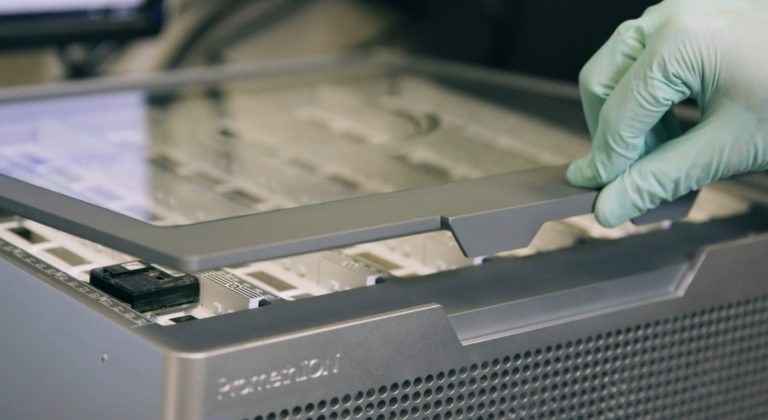
Abu Dhabi’s Department of Health will use Oxford Nanopore Technologies’ PromethION technology in a new large-scale population genomics project designed to promote personalized medicine by improving the understanding of the genomics of individuals.
During the first phase of the Population Genome Program, the genomes of 100,000 individuals will be sequenced, Abu Dhabi health officials said.
They added that the program intends to be the first in the world that provides citizens with their own genome as a baseline by using advanced sequencing technology to generate the highest quality, most comprehensive genome data, then incorporate it into healthcare management.
The Department of Health-Abu Dhabi will lead the program, with partners that include Oxford Nanopore Technologies as well as Chinese sequencing giant BGI, and Abu Dhabi-based technology company Group 42.
BGI’s subsidiary MGI announced in February that it had opened an office in Dubai as part of an expansion in the region that it said would include the UAE, as well as Qatar and Saudi Arabia. MGI said at the time that six of its newest and highest-throughput sequencers, MGISEQ-T7, could complete a 100,000-person population genome program in one year, producing up to 6Tb of daily data, equivalent to up to 60 whole human genomes in a single day.
Group 42’s Artemis supercomputer, located in Abu Dhabi, will be used to analyze the large-scale data to be generated, and offer new insights into patient health that include advanced diagnosis and treatment options. Those insights will be applied by Abu Dhabi Health Services Company (SEHA) toward healthcare services, Abu Dhabi health officials said.
The officials aim to address a challenge to healthcare in the Arab world—namely a lack of a high-quality Emirati reference genome that has hindered understanding of genetic variation in the Arab population among physicians and other healthcare professionals.
The new initiative plans to produce a reference genome specific to UAE citizens, and drive large-scale scientific discovery—helping to position Abu Dhabi as an omics-driven research and innovation hub focused on R&D in bioinformatics, healthcare, and personalized medicine.
“Embracing innovation and providing a comprehensive healthcare program in the Emirate of Abu Dhabi remains at the forefront of our priorities,” H.E. Sheikh Abdulla Bin Mohamed Al Hamed, Chairman of Department of Health-Abu Dhabi, said. “Two of the world’s most exciting technologies – DNA sequencing and Artificial Intelligence (AI) – will come together in this project. The Genome Program will enhance our knowledge of citizen’s genomes and establish a strong foundation of health and well-being.”
PromethION consists of two systems: One of 24 flow cells called PromethION 24, and the other of 48 flow cells called PromethION 48. Both systems are designed to deliver sub-$1,000 human genomes through long-read, direct DNA and RNA sequencing, at larger scale than the company’s MinION and GridION systems.
According to Oxford Nanopore Technologies, a PromethION 48 device can deliver more than 7Tb of sequence data in a single run of 48-flow cells.











